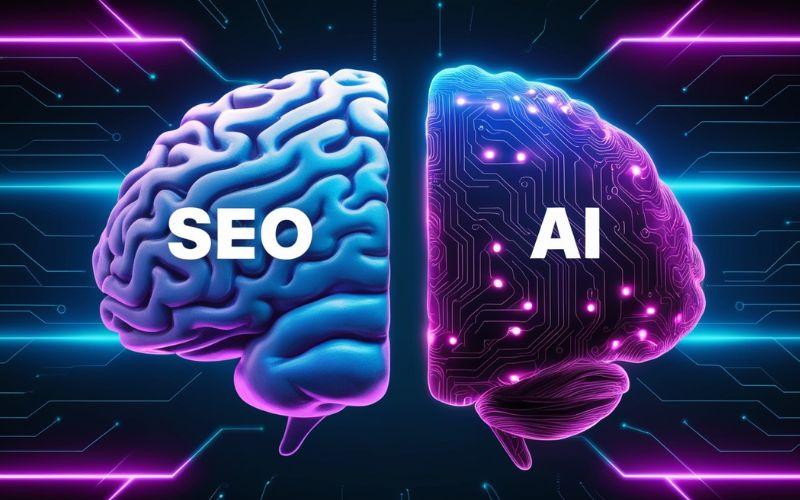Leveraging AI Platforms for Personalized Inbound Marketing Campaigns
In the highly competitive world of digital marketing, inbound marketing has become increasingly important as a way to attract and engage potential customers. A key aspect of inbound marketing is personalization, which allows businesses to create highly targeted campaigns that resonate with their audience. AI platforms have emerged as game-changing tools to enhance personalization, enabling businesses to optimize their digital marketing strategy and deliver more relevant and engaging content to their customers.
Quick Links
Understanding AI Platforms for Inbound Marketing
AI platforms incorporate machine learning, natural language processing, and other advanced technologies to automate and enhance various aspects of marketing. When integrated into inbound marketing strategies, AI platforms can help businesses better understand their audience, create highly personalized content, and optimize campaign performance.
The benefits of using AI platforms in inbound marketing include improved customer engagement, higher conversion rates, and more efficient use of marketing resources. Popular AI platforms for inbound marketing include HubSpot, Marketo, and Salesforce Einstein.
Data-Driven Personalization with AI
One of the key advantages of AI platforms is their ability to collect and analyze vast amounts of customer data, allowing businesses to create more relevant and personalized campaigns.
To harness the power of AI-driven personalization, businesses need to focus on three main areas:
1. Gathering and analyzing customer data.
AI platforms can help businesses collect various data sources, including website interactions, social media activity, email engagement, and alternative data for inbound marketing, such as browsing history and geolocation data. Real-time data processing and analysis enables marketers to quickly identify patterns and trends, informing their marketing strategies.
2. Creating customer segments and personas.
By identifying key demographics and behaviors, businesses can use AI platforms to create dynamic customer profiles. These profiles enable businesses to target specific customer segments with personalized content and offers, increasing the likelihood of conversion.
3. Generating personalized content and recommendations.
AI-driven content creation tools can help businesses produce highly relevant and engaging content for their audience. Additionally, AI platforms tailor recommendations based on customer preferences, ensuring that each individual receives content that resonates with them.
AI-Enhanced Inbound Marketing Techniques
AI platforms can be used to enhance several inbound marketing techniques, including personalized email marketing, social media marketing, and website experiences.
Here’s how AI can improve these marketing channels:
1. Personalized email marketing.
AI-driven subject lines and copywriting create more engaging and relevant email content, while behavior-based triggers and automation ensure emails are sent at opportune times. This helps increase open rates, click-through rates, and overall email campaign performance.
2. Personalized social media marketing.
AI-powered content curation and scheduling tools identify the most relevant and engaging content to share with audiences on social media. Additionally, sentiment analysis can target messaging based on users’ emotions and opinions, ensuring social media campaigns resonate with their intended audience.
3. Personalized website experience.
Dynamic content and layout optimization create a more personalized and engaging website experience for visitors. AI-driven chatbots and virtual assistants further enhance this experience by providing real-time assistance and support, guiding users through the buyer’s journey.
Measuring Success and Optimizing Campaigns
To ensure personalized inbound marketing campaigns are successful, businesses must track key performance indicators (KPIs) such as conversion rates, engagement metrics, and return on investment (ROI). AI platforms analyze campaign performance and identify trends, enabling you to continuously improve and optimize your marketing strategies based on data-driven insights.
Challenges and Ethical Considerations
Despite the many advantages of using AI platforms for personalized inbound marketing, there are challenges and ethical considerations that businesses must be mindful of:
1. Data privacy and security concerns.
Businesses must adhere to data privacy regulations and protect customer information from potential security breaches, implementing robust security measures and being transparent about data collection practices.
2. Balancing personalization with user experience.
While personalization can enhance the user experience, businesses must also be careful not to overdo it. Excessive personalization can make users feel as though their privacy is being invaded or lead to a cluttered and overwhelming experience. Striking the right balance between personalization and user experience is crucial for success.
3. Ethical implications of AI-driven personalization.
AI platforms can sometimes inadvertently perpetuate biases or stereotypes, as their algorithms are based on the data they are fed. Businesses must be vigilant in ensuring that their AI tools are not reinforcing harmful biases and that their marketing campaigns remain inclusive and diverse.
Wrapping Up
The future of personalized inbound marketing is undoubtedly intertwined with AI platforms. By embracing AI-driven tools and techniques, businesses can optimize their digital marketing strategies, create more engaging and relevant content, and ultimately drive higher conversions and customer satisfaction.
However, it is essential for businesses to remain aware of the challenges and ethical considerations associated with AI-driven personalization. By striking the right balance between personalization and user experience, and ensuring that their AI tools are used responsibly, businesses can harness the full potential of AI platforms to transform their inbound marketing campaigns and achieve lasting success.
10 Ways to Build a Strong Online Reputation for Your Online Business
We live in a society where almost everything has shifted to the digital world, including shopping,…
0 Comments12 Minutes
Marketing Your Events: How to Keep Your Attendees Engaged?
Undoubtedly engagement at an event is significant for its overall success, and modern technology…
0 Comments12 Minutes
How to Manage Multiple Reddit Accounts
Reddit is more than just a social platform; with 82% of Zoomers trusting the platform’s review,…
0 Comments3 Minutes
6 Ways to Fund Your Digital Marketing Business
Digital marketing is one of the most lucrative online careers, but just like any industry, there…
0 Comments7 Minutes
Web Application Development: Trends and Best Practices 2024
Web applications are the solutions that are at the core of today’s enterprises. The fast pace of…
0 Comments8 Minutes
How Insights are Reshaping Marketing Strategies
In today's competitive marketplace, data-driven insights have emerged as one of the strongest…
0 Comments5 Minutes
Top Benefits of Having a Skilled Webflow Team
With a website today being the virtual version of a shop within the digital world, in reality, it…
0 Comments9 Minutes
The Impact of AI on SEO in 2024 and Best Practices
In 2024, AI is not just another trend in SEO; it’s a transformative tool that's reshaping digital…
0 Comments4 Minutes








